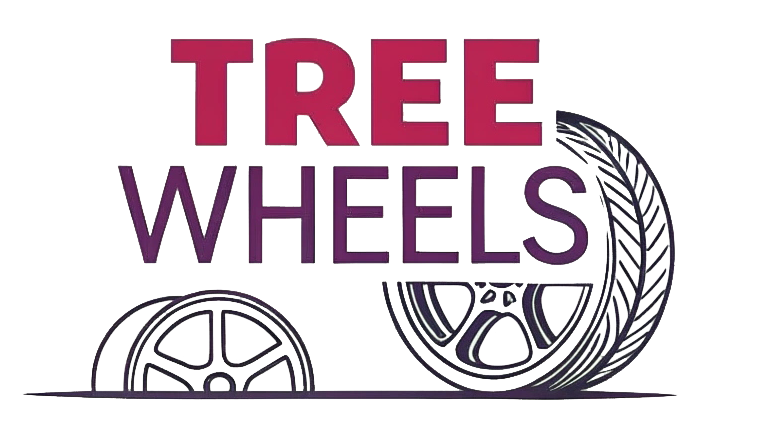Steel wheels are tough, but aluminum alloy wheels are everywhere. Why is that? And what should you really choose if performance and durability matter?
Aluminum alloy wheels are lighter and more stylish, while steel wheels are tougher in cold weather and more affordable, but less common in modern passenger cars.

Steel wheels used to dominate the roads, especially in the early days of the auto industry. But today, they’re rarely seen outside of very specific use cases. That’s not just a trend—it’s a shift shaped by driver preferences, climate needs, and the growing demand for performance. I’ve spent years watching how these materials behave in real-world driving, and I’ve seen how customer budgets, car types, and even the weather change the decision. Let’s dig into it.
Are aluminum alloy wheels better than steel?
Steel wheels are cheaper and stronger in some cases, but most people prefer aluminum alloy for good reasons.
Aluminum alloy wheels offer better looks, performance, and fuel economy than steel wheels, making them the go-to choice for most modern drivers.

Aluminum alloy wheels are popular for a reason. They are lighter than steel, which means they reduce the car’s unsprung weight. That improves handling and fuel economy. They also allow for more design flexibility, so they come in many different styles and finishes. That matters when appearance is important. Steel wheels are often covered with hubcaps or left with a plain finish. Their strength makes them good for rough winter driving or heavy loads, but they are not ideal if you care about aesthetics or responsiveness.
Strength vs. Weight
| Feature | Aluminum Alloy | Steel |
|---|---|---|
| Weight | Lighter | Heavier |
| Strength | Can crack under shock | Bends instead of cracks |
| Fuel Efficiency | Better | Worse |
| Cold Weather Performance | May crack in extreme cold | Better resistance |
| Appearance | Stylish, many designs | Plain, limited design |
Aluminum wheels are not perfect. In extreme cold, they may crack more easily. I’ve seen this happen on icy roads where temperatures drop below freezing. On the other hand, steel rims hold up well under those conditions. That’s why in some snowy countries, drivers still switch to steel in winter. But in China, for example, steel wheels are almost gone from the passenger vehicle market. Even low-budget drivers prefer cast alloy wheels. When the budget allows, forged wheels take the lead. The balance between cost, strength, and appearance has shifted the market toward aluminum alloy.
Is aluminum alloy better than steel?
Aluminum alloy wheels are better for most people, but not everyone.
Aluminum alloy wheels perform better in everyday driving and offer more design choices, while steel wheels are only better in niche cold-weather or heavy-use cases.

Aluminum wheels aren’t just lighter—they’re more flexible in how they’re made. That allows for custom finishes, colors, and intricate spoke designs. Steel wheels can’t compete in that area. They’re often seen on budget cars, or hidden behind wheel covers. But I’ve noticed that even people on tighter budgets will choose cast aluminum wheels before going with steel. Aluminum gives them a better overall driving experience and a better-looking vehicle.
What are the disadvantages of steel wheels?
Steel wheels may be strong, but they come with a list of drawbacks.
Steel wheels are heavy, less attractive, and limit vehicle performance. They also don’t support advanced design or customization.

Steel wheels are harder to bend or break, but that strength comes with weight. They make the car feel heavier, especially on rough roads. That can hurt acceleration and fuel economy. Their look is also very basic. Most have a flat black or silver finish, with no styling. They’re made by stamping and welding, which limits design. For commercial vehicles or winter driving, they might still make sense. But I rarely see steel wheels in consumer vehicles anymore—especially not in the Chinese market.
Main Disadvantages of Steel Wheels
- Too heavy for performance-focused cars
- Limited customization
- Outdated appearance
- Not suitable for high-end modifications
- May corrode faster if not maintained
What is the best material for wheels?
There is no single “best” wheel material—it depends on what you want from your wheels.
Forged aluminum alloy is the best choice for performance, strength, and design flexibility. Cast aluminum is second, and steel is the least preferred for modern cars.

If you’re looking for top-tier quality, forged aluminum alloy is the clear winner. It’s lighter and stronger than cast wheels. It also supports detailed custom work, which is why Tree Wheels focuses on forged models. Cast aluminum wheels are a more budget-friendly version. They still offer good performance and looks, though they’re not as durable under stress. Steel rims, while cheap and durable, simply don’t meet the needs of modern drivers who care about how their car feels and looks.
Which is a benefit of steel wheels over aluminum?
Steel wheels are still useful in tough, cold environments.
Steel wheels bend instead of crack in impact, and they hold up better in cold weather than aluminum alloy wheels.

I’ve personally seen aluminum alloy wheels fail on snowy mountain roads. The cold makes them brittle, especially if they were cheaply made or cast instead of forged. Steel rims, on the other hand, can handle those conditions. They might get dented, but they usually won’t crack or break. That makes them a decent backup choice for snow tires or for drivers in extremely cold areas. Still, they’re more of a seasonal or backup option, not the first pick for daily driving.
Why steel rims are better?
They’re not better overall—but they can be better in very specific cases.
Steel rims are better for winter driving, budget fleets, and rough terrain, where strength matters more than style or weight.

In some parts of the world, steel rims are still common in winter tire setups or on older fleet vehicles. They’re easier to repair if damaged and cheaper to replace. But in daily use, they fall behind in looks, fuel economy, and customization. I believe that’s why they’re almost gone in China’s market. Buyers would rather spend a little more for cast alloy wheels if they can’t afford forged ones. The only place I see steel wheels regularly is on commercial vans or temporary-use vehicles.
Conclusion
Aluminum alloy wheels dominate because they offer better looks, lighter weight, and overall performance. Steel wheels are cheaper and tougher, but only useful in limited cases.
Tree Wheels makes forged wheels that combine strength and style—built for those who want the best.



